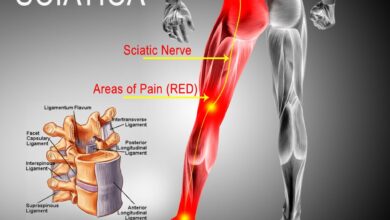Soil amendments come in many different forms, each with their own benefits.
There are two significant types of soil amendments. Soil amendments are either contain organic matter or inorganic matter.
Below are some common soil amendments that are added to the soil for gardening.
Organic Soil Amendments

Organic soil amendment is the process of adding organic matter to soils to improve their composition and function.
Organic matter refers to plant and animal material that has been degraded by aerobic or anaerobic processes but retains carbon, nitrogen, and other essential elements.
These amendments can be made in a variety of ways, including adding composted manure, aged chicken litter, and blood meal (dried animal blood).
Organic soil amendments include decomposable organic materials. These amendments are rich in organic carbon as well as macro-and micronutrients.
The benefits of using organic soil amendments are numerous. First and foremost, organic matter provides important nutrients for plants.
These nutrients include nitrogen, phosphorus, potassium, magnesium, sulfur, and iron.
In addition to providing these essential elements for plant growth and development, organic matter also helps amend the pH balance of soils, which can promote better root growth and nutrient uptake.
Alfalfa meal
Alfalfa meal is a by-product of the alfalfa crop that is composed of two main components: organic carbon and macronutrients.
Organic carbon is a key component in soil amendment because it helps to improve soil fertility, provide nutrients, and neutralize toxins.
Macronutrients are essential for plant growth and include nitrogen, potassium, and phosphorus. Alfalfa meal also contains micronutrients such as magnesium, zinc, and chromium, which are essential for plant health.
It is a popular organic amendment due to the balanced N-P-K (nitrogen-phosphorus-potassium) ratio.
If your soil lacks nitrogen, applying alfalfa will be one of the best choices as it is rich in nitrogen.
Blood meal
Blood meal is a by-product of the slaughtering process and consists of organic carbon, macronutrients, and micronutrients.
A blood meal is another type of amendment widely used by organic gardeners.
It is an important soil amendment because it increases the amount of organic matter in the soil and makes it more fertile.
Bloodmeal also helps to improve the growth of crops by providing them with essential nutrients.
This material is very high in nitrogen; the N-P-K ratio of blood meal is approximately 31-1-0.
Besides these significant nutrients, this organic fertilizer also contains a few trace elements at a minor concentration that are extremely important for the plants.
Chicken manure

Chicken manure is a by-product of chicken farming.
It is a dark black material composed mostly of nitrogen, phosphorus, potassium, and other nutrients that are essential for plant growth and organic matter.
It is an excellent soil amendment because it helps to improve soil fertility and increase crop production. As a bonus, chicken manure has a lot of organic carbon, which is good for the environment.
Chicken manure doesn’t contain nitrogen as high as blood meal, but it has a balanced nutrient content with the N-P-K ratio of 3-2-2.
It indicates that chicken manure contains 3% nitrogen, 2% phosphorus, and 2% potassium.
You may either use it in composted manure form or apply it directly, but we suggest you make compost from the chicken manure to increase its efficacy.
Coconut Coir (Coco Coir)
open next page to continue reading….
[adinserter block=”3″]
[adinserter block=”4″]




